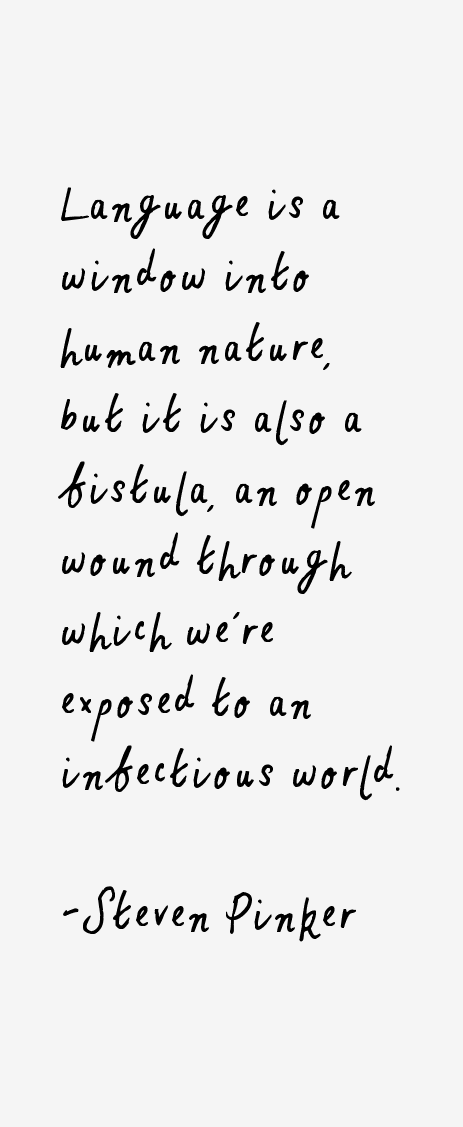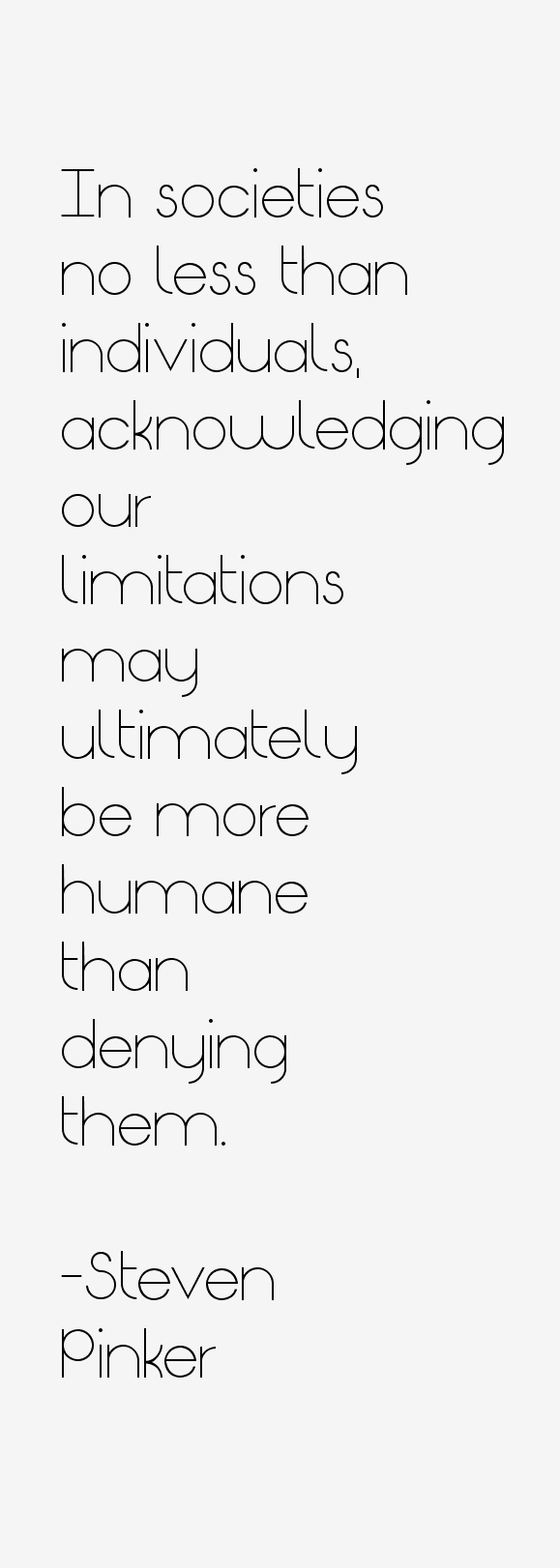Steven Pinker Quotes & Sayings (Page 11)
Steven Pinker quotes and sayings page 11 (71 year old scientist). Here's quote # 101 through 110 out of the 125 we have for him.
“I spent 20 years doing research on regular and irregular verbs, not because I'm an obsessive language lover but because it seemed to me that they tapped into a fundamental distinction in language processing, indeed in cognitive processing, between memory lookup and rule-driven computation.”
“Semantics is about the relation of words to thoughts, but it also about the relation of words to other human concerns. Semantics is about the relation of words to reality - the way that speakers commit themselves to a shared understanding of the truth, and the way their thoughts are anchored to things and situations in the world.”
“There is no society ever discovered in the remotest corner of the world that has not had something that we would consider the arts. Visual arts - decoration of surfaces and bodies - appears to be a human universal.”

“There's guilt about our treatment of native peoples in modern intellectual life, and an unwillingness to acknowledge there could be anything good about Western culture.”
“The European wars of religion were more deadly than the First World War, proportionally speaking, and in the range of the Second World War in Europe. The Inquisition, the persecution of heretics and infidels and witches, they racked up pretty high death tolls.”

“Though knowledge itself increasingly ignores boundaries between fields, professors are apt to organize their pedagogy around the methods and history of their academic subculture rather than some coherent topic in the world.”
“Why do people believe that there are dangerous implications of the idea that the mind is a product of the brain, that the brain is organized in part by the genome, and that the genome was shaped by natural selection?”

“Language is a window into human nature, but it is also a fistula, an open wound through which we're exposed to an infectious world.”

“I think that a failure of statistical thinking is the major intellectual shortcoming of our universities, journalism and intellectual culture.”

“In societies no less than individuals, acknowledging our limitations may ultimately be more humane than denying them.”
Steven Pinker Quotes Rating
No Ratings Yet
Leave A Comment
























